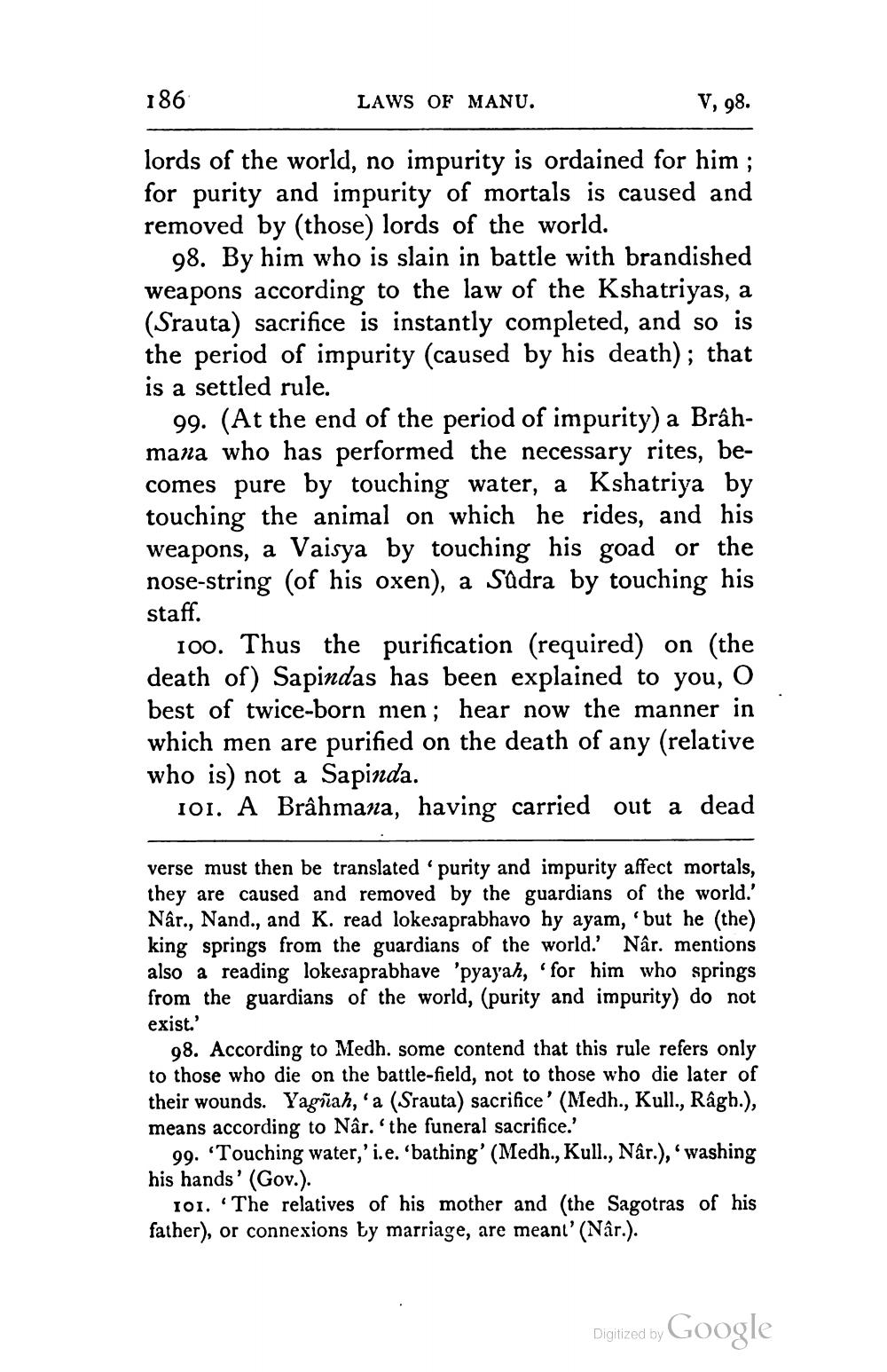________________
186
LAWS OF MANU.
V, 98.
lords of the world, no impurity is ordained for him ; for purity and impurity of mortals is caused and removed by (those) lords of the world.
98. By him who is slain in battle with brandished weapons according to the law of the Kshatriyas, a (Srauta) sacrifice is instantly completed, and so is the period of impurity (caused by his death); that is a settled rule.
99. (At the end of the period of impurity) a Brâhmana who has performed the necessary rites, becomes pure by touching water, a Kshatriya by touching the animal on which he rides, and his weapons, a Vaisya by touching his goad or the nose-string (of his oxen), a Sûdra by touching his staff.
100. Thus the purification (required) on (the death of) Sapindas has been explained to you, O best of twice-born men; hear now the manner in which men are purified on the death of any (relative who is not a Sapinda.
101. A Brâhmana, having carried out a dead
verse must then be translated 'purity and impurity affect mortals, they are caused and removed by the guardians of the world.' Nár., Nand., and K. read lokesaprabhavo hy ayam, “but he (the) king springs from the guardians of the world.' Nâr. mentions also a reading lokesaprabhave 'pyayah, for him who springs from the guardians of the world, (purity and impurity) do not exist.'
98. According to Medh. some contend that this rule refers only to those who die on the battle-field, not to those who die later of their wounds. Yagñah,'a (Srauta) sacrifice' (Medh., Kull., Râgb.), means according to Nâr. 'the funeral sacrifice.'
99. 'Touching water,' i.e. “bathing' (Medh., Kull., Nár.), washing his hands' (Gov.).
101. The relatives of his mother and (the Sagotras of his father), or connexions ty marriage, are meant' (Nâr.).
Digitized by Google




